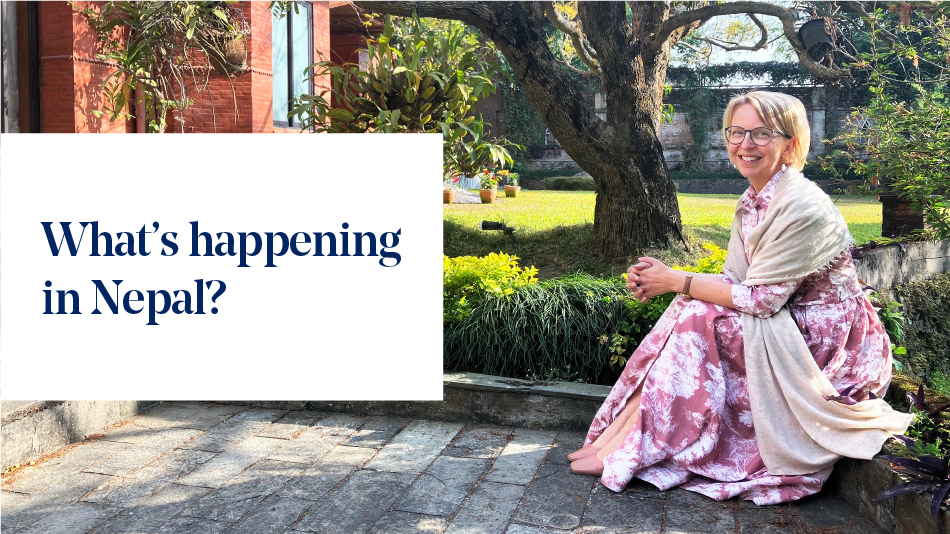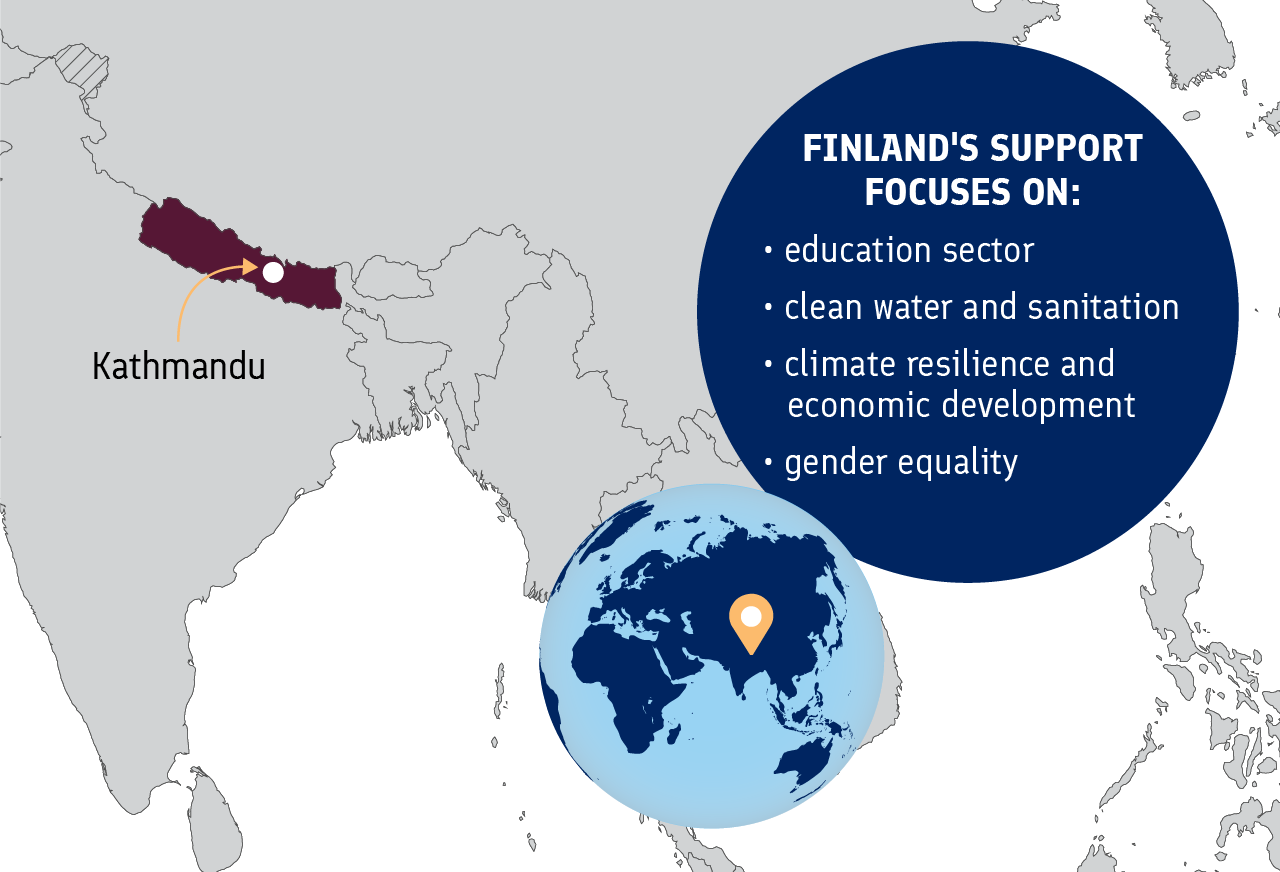Development cooperation has produced significant results in Nepal
Nepal and Finland have a long history of development cooperation that dates back to the 1980s. Long-term development cooperation has helped Nepal reduce poverty, improve literacy and give almost everyone access to clear drinking water, according to Finland’s Ambassador to Nepal Riina-Riikka Heikka.

How would you describe the current situation and the biggest challenges in Nepal?
Many of us still remember the disastrous earthquakes in Nepal in 2015. The country is very vulnerable to natural disasters and the effects of climate change, which is why it is one of the most vulnerable countries in the world. A concrete example is the latest monsoon season that lasted for almost one month longer than normally. The monsoon created landslides and flooding, and everyone in Nepal was affected.
Nepal is facing other challenges, too. It is working to strengthen good governance, institutions and the rule of law, to establish federalism, to weed out corruption, to improve its human rights record and to promote the rights of women and girls. The Nepalese civil war ended in 2006, and the legal arrangements during the transition period are another challenge. Discrimination and inequities are often rooted in the caste system, although the Constitution prohibits discrimination based on caste.
Nepal will hold elections in a couple of days. The elections are an important step towards democracy and towards consolidating the new Constitution. The country has taken determined steps in the right direction in recent years.
How is Finland supporting Nepal?
Nepal and Finland have a long history of development cooperation that dates back to the 1980s. Nepal is an impressive example of the excellent results that can be achieved through long-term work. The recently issued Finland’s Development Policy Results Report presents concrete examples of what Finland’s development cooperation has achieved in Nepal. Despite a civil war and natural disasters, there is now less poverty and higher literacy than before and nearly everyone has access to clean drinking water. For example, during the period 2019-2021, funding from Finland, Nepal and the EU supported 245,000 people in rural mountain villages to gain access to water supply systems, thanks to the Rural Village Water Resources Management Project.
Finland’s priorities in Nepal are to support the education sector, to ensure access to clean drinking water and sanitation, to improve climate resilience and economic development, and to promote gender equality and social inclusion. Finland has a number of strategic and innovation partnerships in Nepal, and we work closely together with the EU, UN Women and UNICEF, among other parties. In addition, there are a large group of Finnish civil society organisations working in Nepal together with local partners. They give us grassroots-level access to local communities and villages, which are often difficult to reach because of Nepal’s mountainous geography.
How do you see the future of Nepal?
You can sense the optimism and the potential in Nepal. Nepal has taken significant steps towards democracy, and it is gradually progressing from the category of least developed countries to the category of lower-middle income countries. It is a significant achievement, and it is encouraging, too, from the perspective of effective partnerships and development financiers.
Nepal must continue to invest in furthering democracy and the rule of law, human rights, anti-discrimination and a more versatile economy. One important leverage is getting the young generation involved and promoting digital transformation. For example, Nepalese students are increasingly interested in the educational opportunities offered by Finnish Universities of Applied Sciences. Work-based migration from Nepal to Finland is on the rise, too.
What has uplifted you personally in Nepal and what can we learn from the locals?
The people especially, and their warmth, friendliness, sense of community and trust in the future. Nepal is an extremely beautiful country, and it has a lot of depth. I am always uplifted by the snow-capped Himalayas. Local festivities are a great way to learn about the traditions, religions and history of the country. You can sense the feeling of progress in Nepal; the people are not standing still.

In this article series, Finnish ambassadors around the world tell what is happening in their duty station.
Text: Anna Palmén
